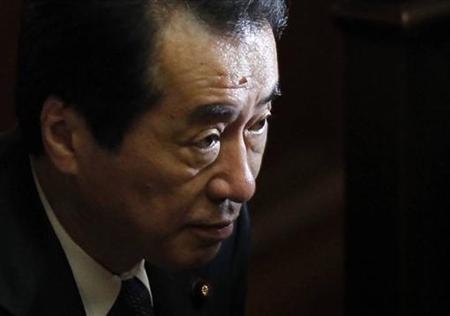Japanese Prime Minister Naoto Kan has resigned as president of the Democratic Party of Japan, effectively ending his tenure as Japanese leader.
"I resign as the (party) president effective today," Mr Kan told senior party officials, Japan's Jiji press quoted him as saying today.
The long-expected move paves the way for the election of the nation's sixth prime minister in five years as Japan looks to safeguard a recovery from the March 11 earthquake, tsunami and an ongoing nuclear crisis.
A ballot for a new party president, who would then become prime minister, is expected on Monday.
Parliament will then vote the leader in as prime minister on Tuesday next week.
"I will leave the post of prime minister once the new leader is decided," Mr Kan said.
Mr Kan was scheduled to hold a press conference later today.
After surviving a no-confidence vote in June, Mr Kan said he would quit on condition that three key bills were passed — a second budget, a budget financing bill and legislation promoting the use of renewable energy.
The final two bills were passed today, clearing the way for him to step down.
Up to nine candidates could end up jockeying to succeed Mr Kan, including the favourite, former Foreign Minister Seiji Maehara.
Finance Minister Yoshihiko Noda may also file for candidacy when campaigning begins tomorrow.
Whoever wins faces the unenviable task of overseeing Japan's biggest post-war reconstruction, resolving of the world's worst nuclear crisis since Chernobyl 25 years ago and shielding the economy from a soaring yen.
They must also unite a divided parliament and win market confidence that Japan can overcome a legislative quagmire to address the world's biggest debt.
Ratings agency Moody's this week downgraded Japan, citing its revolving-door political leadership as a major obstacle to much-needed reform.
After taking office in June last year, the 64-year-old Mr Kan struggled amid low support ratings, a power struggle within the DPJ and a divided parliament in which the Liberal Democratic Party opposition blocked various bills.
Japan's triple disaster — which left 20,000 dead or missing, wiped out whole towns and sparked the Fukushima nuclear accident - tested his leadership and led to accusations that he bungled the response to the calamity.
AFP




Recent Comments